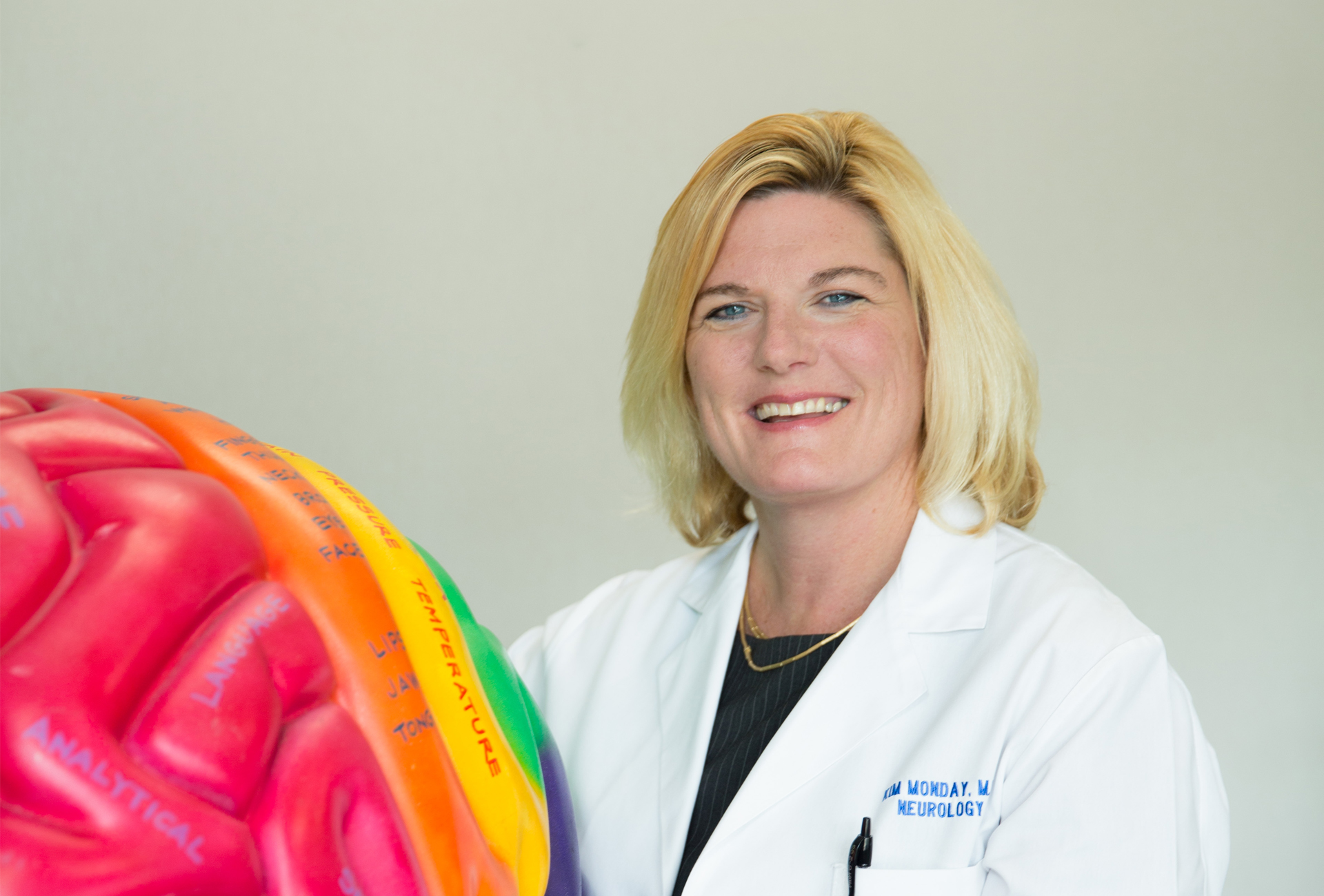Dr. Kimberly Monday is a Plan II alumna, the 1988 Texas Parents Association’s Outstanding Female Student and a Dean’s Distinguished Graduate from Huntsville, Texas. She attended Baylor College of Medicine and completed her neurological residency there before taking a fellowship at Emory University. She is the owner of the Houston Neurological Institute and president of the Harris County Medical Society, and she serves on the Board of Managers for the Harris County safety net system, Harris Health.
What made you want to be a doctor?
I never remember not wanting to be a doctor. My father was a physician, so obviously this must have played a role. I forced myself to look at other career options during college, but I never found a career path that would allow me to combine my interest in the humanities, my interest in science, my desire to stay professionally stimulated on a daily basis and my desire to give back to people who really need you.
What drew you to the Plan II program?
I was attracted to the small classes, access to the best professors on campus and high-quality peers that stimulate you to be your best. I knew medical school and beyond would demand immersion in the sciences. The course catalog selections that included amazing seminars, access to art history classes and writing workshops sealed my selection of Plan II.
What is your favorite memory at UT Austin?
Two memories come to mind. First, winning a hard-fought quest for an A- in organic chemistry. Secondly, my friendships with a group of women who were presidents of the councils of all the large colleges on campus, as well as the student body president in 1988. Our faculty mentor was Dean Sharon Justice. I felt supported, empowered and equal.
How has your background in liberal arts helped you as a physician?
The question is how has my liberal arts background not helped me as a physician. I can only think of one time, and that is first-semester microbiology in medical school.
Mastering the medical sciences is crucial to patient care, but when I walk in to a patient’s room, the power of observation, the ability to communicate with the patient, the ability to relate to a patient and his/her social background and the ability to assess expressions and body language are crucial to my profession. Humanists make great doctors.
What has been your most difficult challenge as a doctor?
Establishing boundaries and shielding my family from the tragedy and pain that happens daily as a physician. Practically, the biggest challenge is negotiating a system of health care that is not designed by physicians and does not value the patient-physician relationship. I strongly believe that physicians should lead changes in our health care system, not the insurance payers, the hospitals or the government.
What is your proudest accomplishment?
I feel happy that my 12-year old twins Jack and Ellie don’t see race or color, and seem to believe that having two moms is not a big deal.
With respect to UT, I am grateful that the university has provided a phenomenal education to my family, from my grandparents to my parents to my generation and I hope to my children. My two sisters and I are all UT Friars, and that makes me proud.
What’s your hope for Plan II as it celebrates 80 years?
To continue as the highest-quality education with the best professors, best students and best classes grounded at the best public university in the country in the middle of the best city to live in the country. I also hope Plan II will collaborate and grow with the new Dell Medical School with respect to medical ethics and medical policy.
